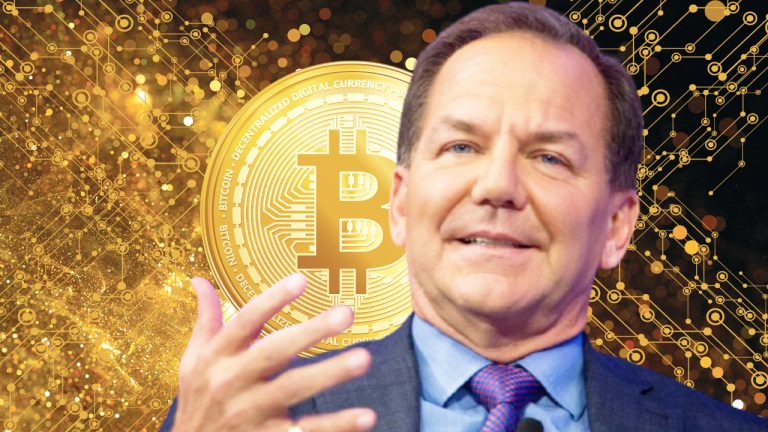Latest news about Bitcoin and all cryptocurrencies. Your daily crypto news habit.

Billionaire hedge fund manager Paul Tudor Jones says he likes bitcoin. Noting that he can trust math, the famed hedge fund manager said, “bitcoin has appealed to me because it’s a way for me to invest in certainty.” Jones also shared his investment strategies in response to the Fed’s policy.
Paul Tudor Jones on Bitcoin, Fed Policy, Inflation
Paul Tudor Jones, the founder of asset management firm Tudor Investment Corp., explained to CNBC Monday why he likes bitcoin. He described:
I like bitcoin. Bitcoin is math and math has been around for thousands of years. 2+2 is going to equal 4 and it will for the next 2,000 years. So, I like the idea of investing in something that’s reliable, consistent, honest, and 100% certain. So, bitcoin has appealed to me because it’s a way for me to invest in certainty.
“I look at the difference between the Fed in 2013 and Fed of 2021 … I look at the difference between Trump and Biden,” Jones noted. “Do I want to have faith and that same reliability and consistency in human nature?”
When asked if he likes bitcoin at the current price, Jones replied:
I like bitcoin as a portfolio diversifier … The only thing that I know for certain is I want to have 5% in gold, 5% in bitcoin, 5% in cash, 5% in commodities at this point in time.
“I don’t know what I want to do with the other 80%,” the famed hedge fund manager admitted. “I want to wait and see what the Fed is going to do because what they do will have a big impact.”
A 5% allocation is a significant increase from his earlier allocation of between 1% and 2% that he revealed last year.
He further shared, “I have a defensive position in bitcoin to protect myself, my family, and our wealth over time.” He also said he does not look at the price of bitcoin anymore, implying that he is a hodler.
Jones also offered his views on inflation and the upcoming Federal Reserve meeting. He said the Fed meeting this week could be the most important meeting in Chairman Jay Powell’s career, and “certainly the most important Fed meeting of the past four or five years.” Clarifying why the meeting is so important, he said:
The reason why is because we’ve had so much incoming data that challenges both their mission and their model. So how they react to that will be extraordinarily important and I think for investors as to how they should deal with their portfolios going forward.
Jones explained that consecutive consumer price index readings put price pressures well ahead of the Fed’s 2% inflation goal. However, Fed officials continue to insist that the current readings are transitory and unlikely to persist. Jones disagreed, emphasizing that “It’s an intellectual incongruity that risks damaging their forecasts if they’re wrong on inflation.”
Referring to recent economic data showing higher consumer prices, Jones said: “If they [the Fed] treat these numbers, which were material events, they were very material, if they treat them with nonchalance, I think it’s just a green light to bet heavily on every inflation trade.” He further opined:
If they say, ‘We’re on path, things are good,’ then I would just go all in on the inflation trades. I’d probably buy commodities, buy crypto, buy gold.
On the other hand, Jones predicted: “If they course correct, if they say, ‘We’ve got incoming data, we’ve accomplished our mission or we’re on the way very rapidly to accomplishing our mission on employment,’ then you’re going to get a taper tantrum.” He concluded: “You’re going to get a sell-off in fixed income. You’re going to get a correction in stocks. That doesn’t necessarily mean it’s over.”
What do you think about Paul Tudor Jones’ comments on bitcoin and the Fed policy? Let us know in the comments section below.
Disclaimer
The views and opinions expressed in this article are solely those of the authors and do not reflect the views of Bitcoin Insider. Every investment and trading move involves risk - this is especially true for cryptocurrencies given their volatility. We strongly advise our readers to conduct their own research when making a decision.